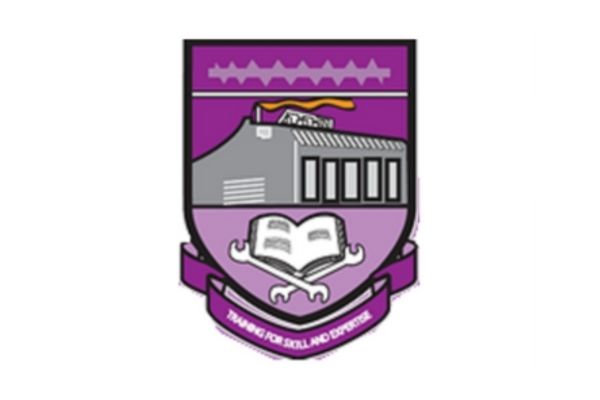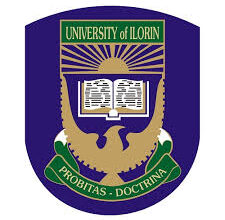So, you’ve finally decided to face the mystery of mysteries — UNILAG school fees. Maybe you’re a fresh jambite dreaming of strolling through the Akoka campus with swagger, or a parent silently praying your wallet survives the admission letter. Either way, you’re in the right place.
Because let’s be honest — figuring out how much UNILAG actually charges can feel like decoding ancient scrolls. One person says it’s affordable, another says it’s affordable-but-you-won’t-eat-for-a-week. We’re here to clear the confusion, break down the figures, and maybe even throw in a laugh or two along the way (because crying over fees is so last semester).
Ready? Let’s dive into the numbers — and maybe save your pocket some stress!
The University of Lagos (Unilag) stands as one of Nigeria’s premier institutions of higher learning. With a rich history spanning several decades, it has earned its place as a leading university in the country, known for producing some of the most influential and innovative professionals in various fields. Whether you are considering applying for undergraduate or postgraduate studies, one of the crucial factors that you need to plan for is the cost of tuition and other associated fees.
How Much Is UNILAG School Fees For 2025/2026
Knowing how much Unilag school fees cost is essential for any prospective student or their guardian. Tuition fees are a significant part of a student’s financial planning, and understanding how they work at Unilag can help prevent surprises during the academic year. This article will explore the various aspects of Unilag school fees, providing an in-depth look at what students should expect to pay, the factors that influence the fees, and how to manage the financial burden of attending this prestigious institution.
Understanding Unilag School Fees
The University of Lagos (Unilag), located in Nigeria, has varying school fees depending on the faculty, program, and level of study (undergraduate, postgraduate, diploma, or professional courses). Here’s an overview to help understand the structure of Unilag school fees:
1. Undergraduate Fees
Returning Students: Fees are generally lower compared to new students and are tailored to the faculty. For instance, science and technology programs often have higher fees due to practical courses.
New Students: Apart from tuition, they may need to pay for acceptance fees, medicals, ID cards, and other onboarding expenses.
2. Postgraduate Fees
Fees for postgraduate programs such as master’s, MBA, and Ph.D. vary based on the type and duration of the program. Professional courses may have higher charges due to specialized content.
3. International Students
International students are usually charged higher fees than local students, and these fees cover additional administrative and support services.
4. Additional Charges
Students may incur fees for:
Accommodation: Hostel fees vary based on the type of room and facilities available.
Laboratory/Practical Fees: Applicable for science and engineering students.
Penalty Fees: For late registration or overdue payments.
5. Payment Guidelines
Payments are typically made online through the university’s portal or designated banks.
Students should ensure they use the correct account numbers to avoid scams.
Breakdown of Unilag School Fees for Undergraduate Programs
The University of Lagos (UNILAG) has updated its undergraduate school fees for the 2024/2025 academic session. The fees vary based on the student’s program and whether it involves laboratory or studio work. Below is a detailed breakdown:
For New Undergraduate Students:
The University of Lagos (UNILAG) has updated its undergraduate school fees for the 2024/2025 academic session. The fees vary based on the student’s program and whether it involves laboratory or studio work. Below is a detailed breakdown:
For New Undergraduate Students:
Type of Charge Courses Without Lab/Studio (₦) Courses With Lab/Studio (₦)
Tuition Nil Nil
Registration 25,000 25,000
Identity Card 5,000 5,000
Result Verification 5,500 5,500
Examinations 15,000 15,000
Library Services 15,000 15,000
IT & Entrepreneurship 15,000 15,000
Students’ Handbook 5,000 5,000
Laboratory/Studio – 49,975
Accreditation 5,825 5,825
Medical Services 10,000 10,000
TISHIP 5,000 5,000
Sports 10,000 10,000
Matriculation 5,000 5,000
Endowment Fund 5,000 5,000
Total 126,325 176,325
For Returning Undergraduate Students:
Type of Charge Courses Without Lab/Studio (₦) Courses With Lab/Studio (₦) Medical Students (₦)
Tuition Nil Nil Nil
Registration 15,000 15,000 15,000
Identity Card 5,000 5,000 5,000
Examinations 15,000 15,000 15,000
Library Services 15,000 15,000 15,000
IT & Entrepreneurship 15,000 15,000 15,000
Laboratory/Studio – 39,500 89,500
Accreditation 5,750 5,750 5,750
Medical Services 10,000 10,000 10,000
TISHIP 5,000 5,000 5,000
Sports 10,000 10,000 10,000
Endowment Fund 5,000 5,000 5,000
Total 100,750 140,250 190,250
Additional Mandatory Charges:
Utility Charge: ₦20,000 (for all undergraduate students)
Convocation Fee: ₦30,000 (for all final-year students)
Toxicology Test: ₦10,000 (for new students)
Breakdown of Unilag School Fees for Postgraduate Programs
The University of Lagos (UNILAG) offers a variety of postgraduate programs across multiple faculties, each with its own fee structure. Below is a breakdown of the tuition fees for selected postgraduate courses for the 2024/2025 academic session:
General Fees for All Postgraduate Students:
Acceptance Fee: ₦61,500
Prospectus Fee: ₦5,000
Departmental Fees: ₦3,000 – ₦20,000 (varies by department)
Accommodation Fee (Optional): ₦58,000
Faculty of Arts:
PGD Philosophy: ₦75,000
M.A. Translation in French: ₦75,000
M.A. English: ₦75,000
Faculty of Business Administration:
M.Sc. Accounting: ₦90,000
PGD Accounting: ₦75,000
M.Sc. Banking and Finance (2 Sessions): ₦150,000
MBA (2 Semesters): ₦150,000
Executive MBA (2 Sessions): ₦1,800,000
M.Sc. Actuarial Science: ₦75,000
M.Sc. Management: ₦75,000
M.Sc. Marketing (2 Semesters): ₦75,000
M.Sc. Finance (3 Semesters): ₦100,000
M.Sc. Industrial and Labor Relations (MILR) (2 Sessions): ₦112,500
M.Sc. Development Finance (per session, 2 sessions total): ₦600,000
Faculty of Education:
M.Ed. Educational Administration & Planning (3 Semesters): ₦75,000
PGD Educational Administration & Planning (3 Semesters): ₦60,000
M.Ed. Measurement and Evaluation (4 Semesters): ₦60,000
PGD Guidance and Counseling: ₦100,000
Business Education: ₦75,500
Faculty of Engineering:
All M.Sc. Engineering Courses (Full-Time): ₦75,000
Faculty of Science:
M.Sc. Information Technology (2 Sessions): ₦225,000
PGD Computer Science (3 Semesters): ₦150,000
M.Sc. Mathematics: ₦90,000
M.Sc. Chemistry: ₦90,000
M.Sc. Physics (Full-Time): ₦90,000
M.Sc. Environmental Toxicology and Pollution Management (Full-Time): ₦90,000 (plus ₦20,000 departmental charges)
College of Medicine:
M.Sc. Public Health (Full-Time): ₦150,000
M.Sc. Public Health (Part-Time): ₦150,000
How to Pay Unilag School Fees
1. Log in to the UNILAG Portal
Visit the UNILAG student portal: www.unilag.edu.ng.
Log in with your student credentials (Matriculation Number or Registration Number and Password).
2. Navigate to the Payment Section
After logging in, go to the “Student Portal” or “Undergraduate Portal” depending on your program.
Select “Fees Payment” or “Make Payment” from the menu.
3. Generate a Payment RRR
Select the specific fee type (e.g., tuition, acceptance fee, or other charges).
A Remita Retrieval Reference (RRR) will be generated for the transaction.
4. Make Payment
Use the RRR to pay via one of the following methods:
Online Payment: Click on the Remita link provided and pay using a debit card.
Bank Payment: Take the RRR to any designated bank and make the payment over the counter.
5. Confirm Payment
After payment, return to the UNILAG portal and log in.
Navigate to the payment section to confirm and print your payment receipt.
If the payment is not immediately reflected, wait for 24-48 hours or contact the bursary for assistance.
6. Print Your Receipt
Once the payment is successful, ensure you print the receipt for future reference.
7. Contact Support (if needed)
If you encounter issues, contact the UNILAG support team or the bursary department.
Important Tips:
Double-check the RRR and payment details to avoid errors.
Avoid using third-party agents for payments.
Keep a record of your receipts and payment confirmations.
School Fee Payment Deadlines and Penalties
Payment Deadlines:
Schools typically set specific deadlines for fee payment at the beginning of each term or academic year. These deadlines are essential to ensure smooth administrative operations and to provide necessary resources for students.
Deadlines can vary depending on the institution, but common payment schedules are monthly, quarterly, or annually.
Consequences of Missing Deadlines:
Late Fees: Many schools impose a late payment fee if the deadline is missed. The amount is often a percentage of the outstanding fee.
Suspension of Services: Non-payment may result in restricted access to school services, such as withholding report cards, exam participation, or other resources.
Account Holds: Some schools may place a hold on re-enrollment or class attendance until dues are cleared.
Special Provisions:
Schools often offer grace periods or payment plans for families facing financial difficulties.
It’s advisable to communicate with school administrators in case of financial hardships to avoid penalties and ensure mutual understanding.
Penalties:
Penalties for non-payment are usually outlined in the school’s fee policy. These may include:
Legal actions or referral to collection agencies for long-overdue accounts.
Incremental late payment charges that increase over time.
Tips to Avoid Penalties:
Set reminders for payment deadlines.
Opt for automatic payments, if available.
Keep a record of all fee-related communications and receipts.
Discounts or Reduction in School Fees
1. Discount Policies Offered by Schools
Early Payment Discounts: Many schools offer discounts for early payment of tuition fees.
Sibling Discounts: Schools often provide reductions for families with multiple children enrolled.
Merit-based Scholarships: Exceptional academic or extracurricular performance may qualify students for partial or full tuition reductions.
Need-based Financial Aid: Some institutions have programs for families with demonstrated financial needs.
2. External Assistance
Government Subsidies: Check if your government offers subsidies or grants for education.
Private Scholarships: Many organisations provide scholarships to students meeting specific criteria.
3. Negotiation or Custom Arrangements
Some private schools may be open to fee adjustments or payment plans if approached with a clear explanation of financial constraints.
Future Projections for Unilag School Fees
The University of Lagos (UNILAG) has recently adjusted its school fees in response to prevailing economic conditions. These changes, effective from the 2023/2024 academic session, have led to significant increases across various programs.
Current Fee Structure:
New Undergraduate Students:
Courses without Laboratory/Studio: ₦116,325
Courses with Laboratory/Studio: ₦166,325
Additional Utility Charge: ₦20,000
Toxicology Test Fee: ₦10,000
Acceptance Fee: ₦20,000
Returning Undergraduate Students:
Courses without Laboratory/Studio: ₦80,750
Courses with Laboratory/Studio: ₦120,250
Medical/Pharmacy and Health Profession Courses: ₦170,250
Additional Utility Charge: ₦20,000
Conclusion
By staying informed about Unilag’s school fees, payment deadlines, and available support, students and their families can make better financial decisions. Whether you’re embarking on your academic journey at Unilag or planning to further your studies, proper preparation is key to navigating the financial commitments required for a successful educational experience.
At the end of the day, UNILAG school fees aren’t quite as scary as urban legends make them out to be — unless, of course, you forgot to budget for textbooks, handouts, and the occasional “compulsory departmental dues that nobody warned you about.”
Whether you’re a returning student or a fresher proudly clutching your admission letter, knowing the actual fees — and the hidden extras — puts you one step ahead. So plan smart, pay on time, and maybe keep a little something extra for that after-lecture suya — because campus life isn’t just about classes and receipts.
UNILAG may be “the university of first choice and the nation’s pride,” but your finances don’t have to suffer for it. With the right information, you can stay educated and well-fed.







